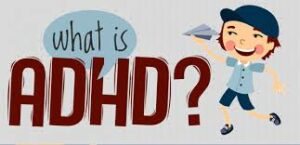Did you know that ADHD can increase the risk of suicide? In fact, people with ADHD are two to three times more likely to commit suicide than those without ADHD. If you or someone you know is struggling with ADHD and suicidal thoughts, it is important to get help right away. This blog post will discuss the link between ADHD and suicide, as well as how to get help if you need it.
Contents
Defining ADHD
 ADHD is defined as a mental disorder that is characterized by problems with focus, hyperactivity, and impulsiveness. This condition is typically diagnosed in childhood, but it can also affect adults. In fact, studies have shown that about 60% of children with ADHD will continue to experience symptoms into adulthood.
ADHD is defined as a mental disorder that is characterized by problems with focus, hyperactivity, and impulsiveness. This condition is typically diagnosed in childhood, but it can also affect adults. In fact, studies have shown that about 60% of children with ADHD will continue to experience symptoms into adulthood.
The condition is described with so many different terms that it can be confusing. For example, you may have heard it referred to as ADD, which stands for Attention Deficit Disorder. However, the term ADHD is now used more often because it includes both inattention and hyperactivity/impulsivity.
Also, it is believed that there are three types of ADHD:
- Predominantly Inattentive Type
- Predominantly Hyperactive-Impulsive Type
- Combined Type (which is a mix of the other two types)
It is important to note that ADHD is not a single disorder, but rather a group of symptoms that can vary from person to person. So, it is essential to get a proper diagnosis from a mental health professional in order to develop an appropriate treatment plan.
The Link Between ADHD and Suicide
 While suicide is a serious concern for everyone, it is an especially pressing concern for those with attention deficit hyperactivity disorder (ADHD). In fact, research has shown that people with ADHD are four times more likely to attempt suicide than those without the condition.
While suicide is a serious concern for everyone, it is an especially pressing concern for those with attention deficit hyperactivity disorder (ADHD). In fact, research has shown that people with ADHD are four times more likely to attempt suicide than those without the condition.
There are many reasons why people with ADHD may be at increased risk for suicide.
- For one, ADHD can lead to feelings of isolation and loneliness. Those with ADHD may feel like they don’t fit in or that they are unable to keep up with their peers. This can lead to feelings of inadequacy and worthlessness.
- In addition, people with ADHD may struggle with impulsivity and poor decision-making skills. This can lead to impulsive behaviors, such as drug abuse or risky sexual behavior, which can increase the risk of suicide.
- People with ADHD may have difficulty coping with failure and disappointment. They may feel like they are constantly falling short, no matter how hard they try. This can lead to feelings of hopelessness and despair.
- Also, ADHD can cause problems in relationships. People with ADHD may have trouble sustaining friendships or intimate relationships. This can lead to feelings of isolation and loneliness.
So, there are many reasons why people with ADHD may be at increased risk for suicide. If you or someone you know has ADHD, it is important to be aware of the signs of suicide and to get help if needed.
In fact, people tend to experience a decrease in symptoms of ADHD when they are receiving treatment. So, treatment can be an important step in preventing suicide.
Risks Factors Of ADHD Suicidal
It is often hard to diagnose ADHD in adults, as many of the symptoms can be chalked up to stress or poor coping mechanisms. However, there are certain risk factors that may point to an underlying diagnosis of ADHD. If you or someone you know has several of these risk factors, it is important to seek professional help.
History of self-injury
This is one of the most common risk factors for suicide in general and is especially prevalent in those with ADHD. If you have a history of self-injury, it is important to seek help from a professional as soon as possible. Because a history of self-injury can be a sign of underlying mental health problems. It is important to get help before the situation escalates.
Substance abuse
Another common risk factor for suicide is substance abuse. This is especially true for those with ADHD, as many turn to drugs or alcohol in an attempt to self-medicate. If you or someone you know is struggling with substance abuse, it is important to seek professional help. In fact, substance abuse is one of the most common warning signs of suicide.
Loss of job or relationship
Another common trigger for ADHD suicide is the loss of a job or the end of a relationship. For many people with ADHD, their job is one of the few things that give them a sense of purpose and structure. Losing that can be devastating. The same goes for the end of a relationship. If you’re struggling with suicidal thoughts after a major life event like this, it’s important to reach out for help.
Sense of hopelessness
 A sense of hopelessness is another common trigger for suicide. When you’re dealing with ADHD, it can be hard to see the light at the end of the tunnel. You may feel like you’re never going to get your life together or that things will never get better. If you’re feeling hopeless, it’s important to reach out for help. There are people who care about you and want to help you get through this tough time.
A sense of hopelessness is another common trigger for suicide. When you’re dealing with ADHD, it can be hard to see the light at the end of the tunnel. You may feel like you’re never going to get your life together or that things will never get better. If you’re feeling hopeless, it’s important to reach out for help. There are people who care about you and want to help you get through this tough time.
In fact, it is believed that girls and women with ADHD are at an increased risk for suicide because they often internalize their feelings and see themselves as failures. However, ADHD can occur in anyone, regardless of gender. If you or someone you know is struggling with suicidal thoughts, it’s important to reach out for help. There are many resources available to help you through this tough time.
ADHD And Suicidal
Suicidal is often considered to be a problem that only affects adults. However, children and adolescents with ADHD are also at risk for suicide. In fact, studies have shown that the rate of suicide attempts is higher in individuals with ADHD than in the general population.
The primary reason for this increased risk is the fact that individuals with ADHD often suffer from comorbid conditions, such as depression and anxiety. These disorders can lead to feelings of hopelessness and despair, which can in turn lead to thoughts of suicide.
Even though people with personality disorders are at increased risk for suicide. In fact, people with BPD, bipolar, and anorexia nervosa are more likely to die by suicide than people with ADHD.
It is important to remember that suicidal thoughts and behaviors are not normal and should never be ignored. If you or someone you know is exhibiting signs of suicide, it is imperative that you seek professional help immediately. And, the warning signs of ADHD suicidal should not be ignored.
Ways To Help Someone Who Is Suicidal
 If you are worried about someone who may be suicidal, there are some things you can do to help. Some of the things that you can do to help are:
If you are worried about someone who may be suicidal, there are some things you can do to help. Some of the things that you can do to help are:
Talk to the person
This is probably the most important thing that you can do. Talking to the person lets them know that you care and that you are there for them. Also, you can get a better idea of what is going on with the person and why they may be feeling suicidal. However, when you talk to the person, make sure that you are not judgmental and that you do not try to talk them out of their feelings.
Listen to the person
Sometimes, people just need someone to listen to them. This can be a great way to help someone who is suicidal. Just letting them know that you are there for them and that you want to help can make a big difference. Moreover, listening to their struggles can also help you understand them better.
Offer support
If the person is suicidal, they may feel like they are all alone and that no one cares about them. Offering your support lets them know that they are not alone and that you care about them. You can offer your support in many different ways and can say some things like:
- “I’m here for you.”
- “I care about you.”
- “You are not alone.”
Encourage them to get help
If the person is suicidal, they may need professional help. Encourage them to see a therapist or counselor. You can also offer to go with them to their appointments. Moreover, you can also encourage them to join a support group. Getting help from professionals and others who understand can be very helpful for someone who is suicidal. However, encourage them to seek professional help only when they are ready to do so.
Keep in touch
Once the person has gotten help, it is important to keep in touch with them. This lets them know that you are still there for them and that you care about their well-being. You can keep in touch with them by:
- Sending them a text or email
- Calling them
- Meeting up with them
- Visiting them
Just letting them know that you are there for them can make a big difference.
So, these are some primary steps that you can take to help someone who is suicidal. Just remember to be there for them and to offer your support. If the person needs professional help, encourage them to seek it out. Doing these things can make a big difference in the life of someone who is suicidal.
Professional Ways To Treat ADHD Suicidal
 If you or someone you know is suffering from ADHD and suicidal thoughts, there are professional ways to get help. Here are some options:
If you or someone you know is suffering from ADHD and suicidal thoughts, there are professional ways to get help. Here are some options:
Dialectical Behavior Therapy
DBT is known to be an effective form of treatment for those who suffer from conditions like ADHD, suicidal thoughts, and self-harm. It focuses on teaching patients how to better deal with emotions and stressful situations. More often, DBT is used in conjunction with medication.
Moreover, a therapist can help a patient with ADHD understand their thoughts and feelings better. They can also work on providing tools to deal with the challenges of ADHD, like:
- developing a support system,
- learning how to manage time,
- improving organization skills.
In many ways, DBT is an all-encompassing form of treatment that can help patients in a number of different areas.
Cognitive Behavioral Therapy
CBT is another form of therapy that has been shown to be effective in treating ADHD and suicidal thoughts. It focuses on helping patients change the way they think about and react to certain situations.
Like DBT, CBT can also be done in individual or group sessions. Researchers have found that CBT can help reduce symptoms of ADHD and suicidal thoughts. Moreover, it is believed that CBT can help patients develop more positive coping mechanisms and reduce impulsivity.
Medication
ADHD suicidal thoughts or behaviors often improve with medication. Stimulants, such as Adderall and Ritalin, are the most commonly prescribed medications for ADHD. These drugs help improve focus, concentration, and impulsivity in people with ADHD.
Non-stimulant medications, such as Strattera and Wellbutrin, are also used to treat ADHD. These drugs are often used when stimulants haven’t worked or have caused side effects.
Antidepressants, such as Prozac and Zoloft, may also be prescribed to people with ADHD. These medications can help improve mood and focus.
Overall, medication for ADHD suicidal is actually quite effective. If you or your child is struggling with ADHD, talk to your doctor about what treatment options are available.
Support Groups
 Support groups are considered an important part of ADHD treatment. They provide a space for people with ADHD to share their experiences. And connect with others who understand what they’re going through. More often, support groups for people with ADHD are led by mental health professionals.
Support groups are considered an important part of ADHD treatment. They provide a space for people with ADHD to share their experiences. And connect with others who understand what they’re going through. More often, support groups for people with ADHD are led by mental health professionals.
There are many online support groups for people with ADHD. These groups can be a great resource for people who cannot attend in-person support groups. Or for people who want to connect with others outside of their local community.
Therefore, these are some major things you should know about ADHD and suicide. If you or someone you know is struggling with ADHD, please reach out for help. With the proper support, people with ADHD suicidal feelings overcome these thoughts and go on to lead happy, fulfilling lives.
Conclusion
To conclude, ADHD suicide is a real thing. It’s important for loved ones to be aware of the signs and to get help if they see them. If you or someone you know is struggling with suicidal thoughts, please don’t hesitate to reach out for help. There are many resources available, and suicide is preventable.
For more information, please contact MantraCare. ADHD is a neurodevelopmental disorder characterized by difficulty in paying attention, hyperactivity, and impulsivity. If you have any queries regarding Online ADHD Counseling experienced therapists at MantraCare can help: Book a trial ADHD therapy session


